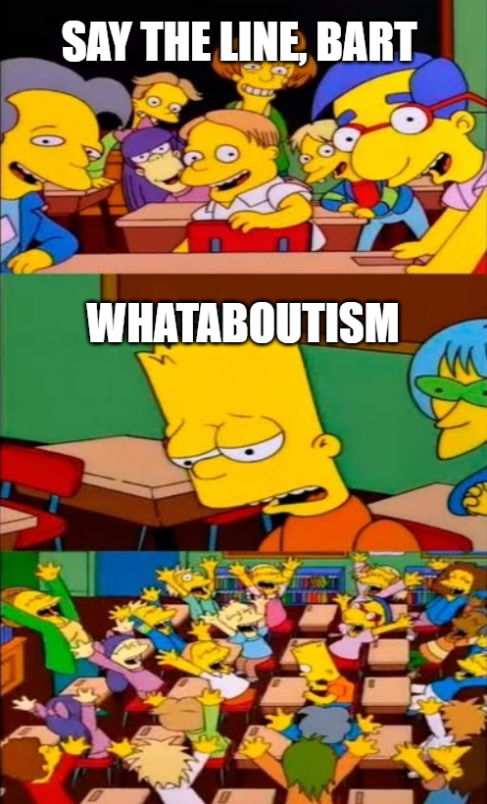I have zero medical qualifications. But I largely skip dinner these days, and I do feel healthier.
Is it actually doing something different to my body chemistry - doubtful. It’s probably just a lower caloric intake combined with hey, I sleep better when I don’t have indigestion in the middle of the night from eating something delicious before bed.
There’s some woo arguments in favor of it, but it’s not completely bs, IMO.
It’s basically a way to trick yourself into eating less by restricting the hours of the day you eat. Once you’re doing it for a while your body adapts to it and you’re much less hungry during your fasting hours.
I lost 60 pounds doing it without much pain. I still fast 12 hours(which is mostly sleeping) to maintain the loss.
about 9 months ago, i was curious about it and started at a 16:8 with my eating window between 11a and 7p. didn’t notice anything, but basically just didn’t do breakfast and never ate late. acid reflux stopped. about 6 months ago, i was watching some lecture from a cardiologist give a presentation on autophagy and metabolism and fasting as a healthcare maintenance strategy. it was biology heavy, but delivered in a fairly entertaining way. as a biology nerd who took some human nutrition, animal nutrition, and a whole lot of soil metabolic courses, it was right up my alley. metabolic pathways are complex and us multicellular warm bloods have a lot of adaptability to variable environments, compared to single cells who just sort of go dormant like a robot.
anyway, the lecture made me super curious about a 20:4 (eating window 11am - 3pm). i decided to try that for 1 day. i had this impression that fasting for 20 hours a day would make me all fucked up, cranky, jittery, or whatever. the big change really was confining myself to only tea and water outside of that window, which meant no more artificial sweeteners outside the window. so anyway, nothing weird happened. i was “bored” at dinner time, but decided to just focus on something else. since it went off so easily, i extended the plan to last 3 days. actually had improved energy after that.
i did a week, then 3 weeks. i couldn’t see any downsides. it also made me more conscious of my meal time to make sure to eat something balanced, not just some dumb crap to not be hungry. i decided that 2 days a week, i would optionally drop to the 16:8 schedule so i could be sociable at dinner time. i noticed that those extra meal days i was actually sluggish unless the second meal was super small and light. like a few vegetable dumplings or basically an appetizer. even during once a day regular meal, i could no longer pack it away. my capacity for big eating went way down, so i got full very easy and had that “sated” feel.
anyway, im roughly around 6-7 months on it. i have no scale and don’t weigh myself. all of my clothes are now kinda loose/big on me. i went in to the doc for my check-in. i’ve been on 3 different medications for blood pressure, one for cholesterol, and i take stuff with meals for controlling blood sugar / diabetes. that has been going on for literally several years, and generally my numbers have been OK but not great and my meds have only ever gone up. anyway, i dropped 15% of my body weight apparently in the last 6 months. and my lipid panels all came back optimal, my a1c came back as optimal/normal. my cholesterol is ideal. my BP is now too low like a little old lady, so we’re reducing my meds slowly and checking back in 3 months. i also feel like i have a ton of energy for shit and i am literally never hungry outside my window. i do get excited at meal time for the novely of eating and have found enjoyment in foods i used to not be excited by. like very spicy/acidic thai dishes that are like 80% vegetables by volume, pickled things. since i’m only eating once a day, i can be very intentional about it and i can spend a little extra dough on it if i want.
i gotta say it’s working out for me. there are absolutely people it probably won’t work for and some of those people think their situation is universal. they believe those of us having success with it are crazy nutjobs who don’t listen to our bodies, so they wipe their asses on our experiences. my primary care physician knows i am doing it and seems neutral about it in general, but very supportive of my results. wouldn’t it be crazy if the solution for many of those people succumbing to Metabolic Syndome X was to not force ourselves to metabolize something every 4 hours? like maybe we’re some subset of the population that are better adapted to eat less frequently and we shouldn’t let others bully us into conforming to their constant snacky snacky yum yum lifestyle because it’s literally killing us.
I think one of the things you’re striking on here is how IF can be really useful for people who eat excessive quantities and for people who engage in boredom-eating.
By fasting intermittently it sounds like you’ve changed your relationship to responding to hunger cues, to boredom, to the food you eat, and probably to how big a meal you need.
I think this is why IF is polarising - for some people, such as yourself, it’s the right kind of lifestyle intervention and just what they need. For others it doesn’t fit well at all. It’s a bit like when someone gets a dog or moves to New York and suddenly, 6 months later, they are so much healthier in an effortless sort of way that it seems amazing but it turns out that the change in their lifestyle was enough to tip the scales towards healthier behaviours. Sometimes people just need that external motivation to get out and walk every morning or to sprint to the train, to use the steps on the subway multiple times per day, and to carry their groceries home on foot every other day which is all they needed to achieve a healthier lifestyle.
metabolic pathways are complex
Lol, this is such a mood. As a person who took interest in psychopharmacology later in life, I really wish I paid attention in biology class in school.
I found a YouTube link in your comment. Here are links to the same video on alternative frontends that protect your privacy:
I’ve done this my entire adult life. Not as a diet, I just eat this way. I’m 6’4 and 180 lbs with an athletic/muscular build. So it seems to work for me but I also don’t eat garbage food. High fiber, high protein, low fat, low sugar/carbs.
Here’s a good article comparing a couple different studies: https://skepchick.org/2023/06/study-can-you-fast-your-way-to-good-health-maybe/
TLDR is it’s not conclusive, but you can ask your doctor about trying it out and as long as you don’t turn it into an eating disorder and starve yourself, it might be worth seeing how it works.
Solid TLDR for nutritional advice.
Fad diet.
It works like all weight-loss-diets that in some way it reduces your total caloric intake. If you do that by starving for one day every week or drinking lemon water for lunch every day of the week, it doesn’t matter.
As for the claims about authophagy in just a few hours, I’m pretty sure that’s bullshit. Like all fad diets it promises to “hack” your biology for extra fat-burning or anti-aging or whatever it is this time.
In the end, the best diet for overall health is

Minor CW: disordered eating, drugs, animal experimentation.
Seems like a lot of folks have responded while I was away, and my last couple hours of research tends to agree with them. Seems like my initial knee-jerk skepticism might have kicked in a little hard in this case. I’m pretty drained from work so this is probably going to be a half-assed kind of effortpost, but here we go anyway, because getting deep in the weeds about food and diet is kinda what I do.
All other things being equal, being a healthy weight is going to be better for you than not (this goes for over and underweight), regardless of what specific method you use to maintain your energy balance. That is, provided you’re not doing anything extreme (e.g. keto, binging / purging, meth). So, in that sense, if you can maintain a healthy weight doing intermittent fasting (IF), it’s probably alright. Or at least, not bad.
It gets a bit more hairy when you get into the science. While the RCT quoted in the Skepchick article that someone posted upthread is good, RCTs are necessarily limited in scope. This particular one only compared 8-hour time-restricted eating (TRE) to a calorie restricted diet over 12 months, and for weight loss only. They performed about the same. There are several meta-analyses (aggregate analysis of other RCTs) that generally agree; most forms of IF do about the same as continuous energy restriction (CER – ie low-calorie) diets in terms of weight, fat and cholesterol over a long enough timeline. However it’s worth noting that IF only works if you -actually- reduce calories overall. Fasting does nothing if your weekly calorie intake stays the same (eg- binging on high calorie foods on your “feast” days).
Additionally, there are different forms of IF. This umbrella review of meta-analyses focused on four kinds; Zero-calorie alternate day fasting (ADF) ie- eating only every other day, modified ADF (restricting calorie intake every other day), 5:2 (five days eating, two days fasting at various calorie intake levels), and TRE, as explained above. It does highlight a few places where specific kinds of IF MIGHT outperform CER for certain outcomes (5:2 diet for fasting insulin, for example) or in certain situations (MADF might be better for obesity). But this is really dietician territory, and I’m not a dietician. If you have a specific problem beyond wanting to be a healthy weight, you need to talk to one. Incidentally, this might be where some of the woo around it comes from; there is some preliminary work in animal models and theoretical pathways suggesting it might have some benefit alongside chemotherapy. This is really cutting-edge theoretical stuff, and I’m not an oncologist, either. It’s a big deal if it’s true, but nobody is sure yet. OTOH, being a healthy weight definitely reduces your risk by a good margin. If fasting is what gets you there, cool. Just don’t neglect actual medical treatment if you need it.
Other folks have also mentioned the risk of it evolving into disordered eating. There are survey studies that seem to suggest a correlation, but that’s also somewhat true of -any- kind of dieting. This also doesn’t really establish causality; ie- are they exhibiting disordered eating because of IF, or are they using IF to mask disordered eating, or is there a common thread where people who tend toward disordered eating anyway might find IF more attractive? Regardless, if you feel like you might be vulnerable to that kind of thing, maybe steer clear for now and talk to your doctor and/or psych about it. I’m not a psych, either, btw.
Lastly, maintanence. There doesn’t seem to be a ton of data on this, and what data there is suggests it’s about the same as CER. Which is a shame, because generally speaking, losing weight isn’t as hard as keeping it off. I imagine it might be easier to integrate a time-based regimen into your lifestyle than a calorie-based one, since you don’t have to count anything other than hours. That’s kind of speculation on my part, but some of the other anecdotes in-thread make an intuitive kind of sense to me.
Overall, seems like it’s probably not much better (or worse) than any other method of calorie control for weight loss. Any health benefits are more likely due to weight loss rather than anything specific about the diet though. Advice about eating disorders is valid, and Your Mileage May Vary. The best diet is the one that works for you.
It’s a real slippery slope into disordered eating for a lot of people. It trains you to ignore your body’s natural hunger cues. I’m glad it works for some people, it’s none of my business how others eat, but it is a fad diet and therefore should be viewed with heavy skepticism.
I also don’t hear this discussed often but social eating is a pretty important part of the human experience, and it sucks when you can’t eat with your friends because you’re fasting.
and it sucks when you can’t eat with your friends because you’re fasting.
its not like i go to parties or eat with my friends every day. and besides its pretty easy to adjust my fast for those days when i do have social calls. instead of eating lunch at midday I eat with my friends at 14:00s.
fasting to me is a perfect means of controlling my anxiety and dealing with the completely out of whack food environment in which we grow up today. the food industry relies on inducing overconsumption. it hjacks our bodies’ natural hunger cues via high processed foods. fasting is a natural way to restore a healthy eating instinct. it was only through fasting that i went from wanting to eat all the time to eating in a timely way, valuing each dish i make.
this goes back to eating as a social experience. because i am no longer subject to the deleterious effects of high processed foods i can easily spend a week out with family and friends, eating three times a day, and then return to a reasonable, nutrition based eating period with no problem.
as a side note, the real slippery slope is semaglutide. because those meds are a brute force way to emulate the effects of a healthy hormonal cycle, so it is only logical that once you’re off the meds you’re back to equating appetite with hunger and feeling hungry all the time.
I’m glad it works for you. Please understand your experience is not universal.
I will repeat: for a lot of people, myself included, IF triggers disordered eating patterns.
Semaglutides are a medical miracle for diabetics who struggle to control their blood glucose
They are also just like all other drugs in that when you stop taking them, they stop working. This is also true of literally every other pharmaceutical, and that doesn’t mean people shouldn’t take their psych meds or their anti-seizure meds or their blood thinners.
I would never try to convince someone to change eating habits that are working well for them, but diets (including IF) can absolutely be harmful for some people and I would suggest being sensitive to that when discussing this topic.
I do not deny that every person needs to find their own way through the high processed foods / ersatz foods epidemic. But it has to be done in one way or the other. It’s like with triggering foodstuffs. If sweets are especially troublesome for you, then you end up having to thread the needle. You have to control yourself from consuming the worst kinds of fat/sugar amalgams that capitalism throws at you. And yet you are likely better off not pretending that you can disavow sweets altogether. What you cannot do is pretend that you don’t have a problem. You gotta confront it.
The solution at the end of the day is to consume as much real food as possible, which in turn will allow your body to restore its natural eating patterns. Avoid the chemically pre-digested bread as much as possible because you are simply not built to consume it without spiraling out of control. Eat beans, proteins, fruits, veggies and so on. Even the fatty hummus you make at home won’t be as dangerous to your metabolism as the frankensauces that are served out there with impunity.
In a food environment designed to hjack your hormonal processes and turn your intuition towards overconsumption (and food industry profits) fasting is far from a fad diet. Its a form of resistance against a poisonous food environment. Is it a silver bullet? Probably not. Behaviorial change is down to each individual, and many people will be able to ward themselves off against ersatz foodstuffs via many smaller dishes over their day. The point is that safeguarding one’s body against this environment has to be done one way or the other.
What is already not working I believe is the usage of semaglutides as anything other than a diabetes medication. Because let’s face it, that’s what is happening. If your entire food environment is designed to inflame your appetite, then taking semaglutides as a suppressant is like placing a bandaid atop an open wound.
I don’t think the other person is going to reply to this comment because there’s a fair few things that you have said here that are, to put it bluntly, pretty insensitive to a person who has just brought up the fact that they struggle with disordered eating.
I’m not saying that you comment should have a trigger warning on it, but there are topics and ways of discussing things like food and diet which can aggravate disordered eating. A healthy lifestyle is clearly something which is important to you. It’s worth considering whether your comment in this context is working in service of that outcome or whether it’s working in a counterproductive way.
Every single line written in my comment comes from a place of dealing with disordered eating as well. Specifically the parts where I talked about triggering foodstuffs and how everyone needs to charter their own course.
We can’t ignore the facts. We live under a food environment mostly made up of ersatz foods which are designed to trigger disordered eating. In acknowledging that, we come to understand the industrialized way in which are psyches are subject to siege. That is the context where I believe it becomes not only insensitive but also counterproductive to label fasting a fad diet. It’s not even a diet, it’s a behavior change that does work for lots of people because it resists the worst influences of the food industry in a direct and straightforward manner.
I don’t believe my comment was insensitive and neither was theirs, I think we put forward both of our points of view and walked out with mutual understanding of them. It wasn’t the first time I’d hear that fasting = disordered eating and I’m sure it wasn’t the first time they heard about risks associated with semaglutide medication.
I’m referring to a subclinical eating disorder or a label for someone recovering from an eating disorder here, in the sense that the other commenter has used the term, and not just “eating in a way that is unhealthy”
You, me, my therapist, psychiatrist and the leg I almost lost to diabetes are all on the same page then.
Personal anecdote time I’ve done it to some success, thing is watching what you eat afterwards. Did it enough times and I noticed I had trouble eating the same amounts I used to eat which I think has helped me more than the fasting itself.
It’s reasonable but afaik it’s not really significantly better than other equivalent healthy lifestyle changes. I’m avoiding the term “diet” since that carries too much baggage, but you get what I’m driving at.
I think there’s additional benefits if you’re pre-diabetic as it takes the pressure off your body’s capacity to manage your blood glucose levels.
It can be really good for some people, for others it doesn’t work any better than other options, and it really doesn’t work for some people. If you don’t have any major health concerns then there’s little harm in trying it but it’s not like some massive cheat code where all the work of a healthy lifestyle is addressed by using this one simple trick.
healthy and good for certain bodies, worth doing some research on your own to see if it feels worth trying.
I’ve not found anything that indicates it’s not healthy when done within reason. That is you remain hydrated and have the fat reserve to burn. So fasting doesn’t exclude water. Tea and coffee would be permitted as well as long as no sugar or milk. I also understand the intermittent fasting typically maxes around 72hrs.
Anecdotally, I found it highly effective as part of my dieting routine. I only did the intermittent fasting as a period of “you’re not supposed to eat between these times.” Now if I felt I wanted to break the fast, I made myself spend the effort and make something healthy. I let myself eat if I was actually hungry, but it had to be a real good-for-me meal and something that required dedicated time to make if breaking the fast.
My fasting target was from 8:30pm to 12:00pm the next day. The pattern and habit seems to help control that “boredom hunger”.
I found tracking everything I ate and using a food scale helped me learn what a serving size really is.
I see a lot of keto/low carb hate, but it’s the only one that worked for me. I was able to lose weight and not be hungry all the time.
Do you mean 16:8, 20:4, one-meal-a-day, weekly fasting for 24-48 hours, or something else?
People have been doing a variety of these things for a very long time. There are British nursery rhymes that say “only eat at dinner”. Do college dining halls that open for only brunch and dinner on the weekends fall into the category of intermittent fasting?
I’ve been leaning heavily toward two meals a day for a while for a few reasons. One is that deciding about something to cook every 5 waking hours can get overwhelming. One is that I’ve been inclined for a long time to be a grazer, and just end up eating all throughout the day, often packaged stuff that’s high in simple carbohydrates. I just end up hungry all the time, it keeps my blood sugar spiking and crashing, and it’s bad for my dental health. If I eat one big meal with more vegetables, protein, and fat, it means I don’t have to keep buzzing back through the kitchen/pantry over the next 6-8 hours. It’s also easier to brush and floss after every meal if I don’t have this extra meal sometime in the middle of the day when I’m out and about.
I’m not in a position where I can research it at the moment, but I kinda doubt it.
Feels more like a way to make skipping meals trendy.
I’ll look it up when I get home from work.
Feels more like a way to make skipping meals trendy.
I don’t think so, it might not be for some people but it’s not a fad diet like keto.
God I fucking hate Keto
It’s so stupid but I’d by lying if I hadnt tried it once because of peer pressure.
Societal beauty expectations go brrrrrr.
I also tried it. Shit was terrible
It definitionally is a fad diet. That doesn’t mean you shouldn’t do it, but it’s important to recognize it for what it is.
What about the millions of people who “just don’t eat breakfast”? Are they a fad too?
Skipping breakfast is not the same as having strict windows when you can and can’t eat.
Someone who eats lunch right after noon and dinner before 8 is basically doing the same thing.
“Oops I stopped eating at 9:11 instead of 8:59, my diet plan is fucked” said no one ever.

Fad = not following random vibe takes on hexbear
I thought fad diets came and went or is it different?
It was hugely popular for a minute there, diet industry grifters have written books and made influencer cOnTeNt about it, it is less popular now but still talked about, it’s repackaged old advice, will probably fall totally out of fashion when enough trendy “new” diets replace it. I’d certainly call it a fad diet.
See you’ve described the keto diet there but I’ve known people practising intermittent fasting of just skipping breakfast or having a yoghurt drink and saying they feel great.
Doctors say it’s fine and unlike keto it provides consistent results provided you keep up with it vs dropping weight and then gaining it straight like most fad diets do.
I think intermittent fasting feels more a dietary routine/choice vs a intentional diet focused on specifically losing weight and I certainly don’t think it’s a fad just cos some infulencers jumped on it.
Plenty of doctors say keto is fine. Doctors frankly give shitty dietary advice and will in fact praise disordered eating behavior in fat people if it results in weight loss.
IF does meet the criteria of a fad diet. Agree to disagree there.
It works for some people. It triggers disordered eating in some people. Some people find it difficult to stick to longterm. These statements are true of all diets. IF is no exception.
Edited to add: you said unlike other diets, IF keeps working provided you keep up with it. You have in fact just described all diets. They all work until you stop doing them. And most people stop doing them because they aren’t really sustainable long-term. IF is not an exception here. It is perhaps easier to sustain for longer than keto, but having strict rules about what times you can eat is not sustainable for most people long-term.
Lmao what doctors do you go to who say keto are healthy? Are you American?
I started doing it to lose weight. I lost 2lb per week for a period of 10 weeks. Since then I have continued doing it, but much less strictly. I don’t eat breakfast and try to have a small lunch (like 2 pieces of toast), then I have a very large dinner at around 6pm. I honestly think I feel much better in the mornings, and I don’t get sleepy in the afternoons. The way I started was to slowly push back the time I ate something at the start of the day. At first I didn’t eat until mid morning, then after a few days I didn’t eat until lunch time, then mid afternoon. After a week or so I was no eating anything until my evening meal.













